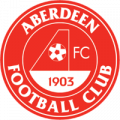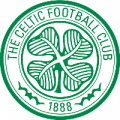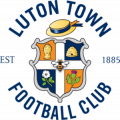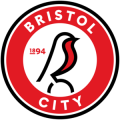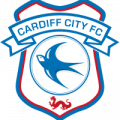In the first part of this article, I discussed a couple game-based topics that would factor into any decision on Caleb Porter's future. Now, let's go to the other side of the road, as it were, and talk about some of the intangibles - things that can't necessarily be measured or quantified, but that definitely play a role in any coach's tenure.
Personality
Caleb Porter is, by all accounts, an intense competitor. Which is good! That's what you want in a coach (and in a player) after all - a guy who will run through walls to win. But the downside of that intense competitiveness shows itself sometimes, as well.
I should caveat all of this with the fact that I don't know Porter, I've never even been in the same room with him (unless you count being inside Providence Park on game day as "in the same room", I guess), and all of the following are just impressions gathered from interviews with him and profiles of him. Take all this with those grains of salt in mind.
One of the first public impressions of Porter that people got was a verbal altercation he had with then-LA Galaxy coach Bruce Arena - one of the winningest coaches in MLS history - after a game between the Galaxy and Timbers in July of 2013. While the details of what was said have never been made public - nor should they, really - the impression many people took away was a brash, intense competitor who maybe should be a little more respectful of his peers, especially peers who had accomplished a lot more than he had at this level.
Porter himself doesn't generally help that impression. He's whip-smart and thoughtful, but he's also not necessarily a guy who's quick with a disarming quote or some light banter to build relationships with the press or the fans, which, let's face it, is not really the worst thing in the world. But.
When one of your first public impressions is blowing up at one of the most accomplished coaches in the game, though, and when another of those highly accomplished coaches calls you out in his speech on his induction into the US Soccer Hall Of Fame, it might be time to take a look at yourself in the mirror and maybe dial it down a couple notches.
And to Porter's credit, those incidents and the experience of winning the Cup in 2015 seem to have tempered him a bit, or at least made him more cognizant, as a public figure, of the need for some self-awareness in public every once in a while.
Porter's a guy who feeds off the intensity of a game, and he's laser-focused on preparation and focus building towards his next game. His challenge is not to lose sight of the fact that that intensity can come at a cost - granted, that is a PR cost that he may not really care about, but that a lot of people - peers, fans, the media - absolutely do.
WORDS HAVE MEANING
I don't know how many times in the last few seasons I've watched a dispiriting loss or a late draw, in which the Timbers were clearly outplayed, only to hear Porter say something in his post game remarks along the lines of "we were the better team, we just got unlucky not to emerge with the three points".
You know what? Sometimes it's OK to admit that you weren't the better team. Sometimes you get beat. That's the way sports works, and it's fine. I know that most of what happens in a postgame press conference are performative more than it is 100% honest - journalists want a quote to fit their narrative, so instead of asking a tactical question or a challenging one, they'll ask "how'd it go out there today, Coach?" or some other question designed to elicit a response and to not cause the subject of the questioning to shut down entirely.
I also know that what coaches say to the media in public is probably quite different from what they say to their players in private. For all I know, after another "we were unlucky" post-game presser, he went back to the locker room and tore strips off his team Sir Alex Ferguson-style.
But even in the mostly softball world of post-game questions, Porter's inability, until almost literally two weeks ago, to publicly admit that his team didn't play well and that sometimes, his team just doesn't compete well is a bit jarring. I'm not looking for Porter to rip his team to shreds every time things don't go well. I'm mostly looking for a departure from the "we played well and got unlucky" boilerplate, or some indication that Porter doesn't actually think his team was the wronged party after a game in which it was clear they didn't do enough to win.
A little humility goes a long way.
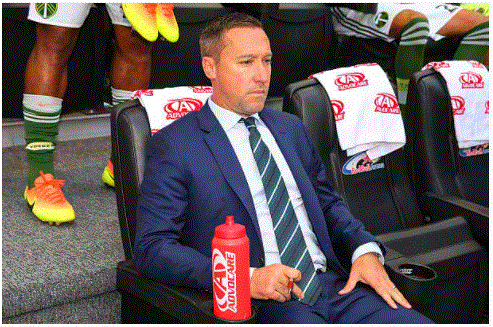
THE MILLION DOLLAR QUESTION
Portland is a wonderful place to live. Mountains close by, two rivers right in the city, any number of parks and outdoor things to do right at your front door. One thing that Portland is not, though, is a rabid sports town in the mode of Boston, New York, or Chicago.
The thing about Portland sports fans, be they Winterhawks, Blazers, Thorns, or Timbers fans, is that they are intensely loyal to their team, and they want to love the members of their favorite team as individual people, as well as loving them as the team. And if you as a member of that team do something wonderful, you're given a really, really long leash, because of that one time you did that one thing.
The Timbers, since 2015, have not been a particularly good team. And yet Caleb Porter gets that long leash, because he delivered a pro sports championship to a city that hadn't seen one since 2013, and had waited for that one since 1977. Up to the time of this writing, I have yet to see any serious discussion on the topic of "should Caleb Porter keep his job?", and anytime I do even fleetingly see that question, on social media or elsewhere, the answer tends to be some variation of "BUT 2015!".
For me, at least, that's not enough. Doing a spectacular thing once is great, but if that's your high-water mark, and if every successive season is nowhere even approaching that high-water mark, that's not good enough. I don't demand that the Timbers win MLS Cup every year, but I do demand that the team do everything in its power to make sure they're in the best position to compete for it every year. And in the season and a half since that amazing night in Columbus, I'm not convinced they are doing that.
While I know that the internet is the land of hot takes, and while I appreciate that you've read the almost 3,000 words I've written on this topic so far, I'm afraid I am not going to give you a concrete answer to the coaching job security question yet. Why?
Simple. for me, the answer is entirely conditional on whether the Timbers make the MLS Cup playoffs this season. I think we can all agree that making the playoffs, in itself, is a fairly low bar to set for a team like Portland, with all the positives the team brings to MLS in terms of size and profile.
Every season, more than half the teams in MLS make the playoffs; I don't think assuming the Timbers, a team in the top third of MLS as far as resources, should be among that 54% of teams (52% next season, with LAFC) as a rule is an unrealistic expectation to hold in any given season.
If they do make the playoffs, for me, he gets at least another season to turn around what has happened in the last couple years and build a squad that is consistently in the top 3-4 teams in the West. If they don't, well, that's where I start to think maybe it's time to part ways with Porter and find a coach that can continue to build on what Porter's put in place, add some consistency, and ensure that Portland is a perennial powerhouse, not just a team that gets really good every now and again.

